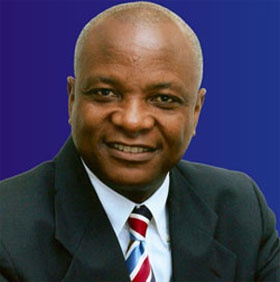- Home - News
- TWI News | TV
- Polls
- Year In Review
- News Archive
- Crime & Punishment
- Politics
- Regional
- Editorial
- Health
- Ghanaians Abroad
- Tabloid
- Africa
- Religion
- Election 2020
- Coronavirus
- News Videos | TV
- Photo Archives
- News Headlines
- Press Release
Business News of Thursday, 4 December 2014
Source: Daily Guide
Monetary policy crippling private sector – Togbe Afede

The monetary policy being implemented by the Central Bank is crippling the country’s private sector and increasing inflation, the Agbogbomefia of the Asogli State, Togbe Afede XIV, who is a board member of the Bank of Ghana (BoG) has disclosed.
He said the Central Bank’s policies should help cushion the private sector.
Togbe Afede made this known at the 45th Godigbe festival of the chiefs and people of the Aflao traditional area over the weekend, which was under the theme “bridging the gap, the experienced and the youthful strength.”
It attracted dignitaries and citizens home and abroad.
Togbe Afede, who is also the President of the Volta Regional House of Chiefs said, “I get very concerned about the kind of monetary policy we are pursuing in this country. A monetary policy that has destroyed our productive sectors, which should actually expand to employ these people.”
He stated that “Borrowing at over 30 per cent is never a viable means of funding a company, particularly the manufacturing sector, no wonder we see our manufacturing sector being destroyed while the likes of banking and the others which employ less people rather make all profits.”
“I have spent 10 years fighting this one-sided approach to fighting inflation, which is always increasing interest rates without success. I think it is time for change.”
“Industry is crying and they need to be listened to,” he stressed.
The eminent chief, who is also the chairman of the World Trade Center, Ghana commented: “It is important that BoG’s monetary policy is geared more towards supporting the real sectors…which means policies that will encourage more companies, more industries and growth in private sector that will provide needed jobs, needed skills, needed training and etc.”
He appealed to government to give incentives to the private sector to engage young graduates to acquire the necessary skills, training and experience to succeed in the job market.
The incentive should be different from direct government cash investment as being done in Nigeria and others, but more like what is being done in Germany and England. If this is done, private sector can grow to provide the employment that we need to be able to satisfy our unemployed youth and also fight inflation, he indicated.










